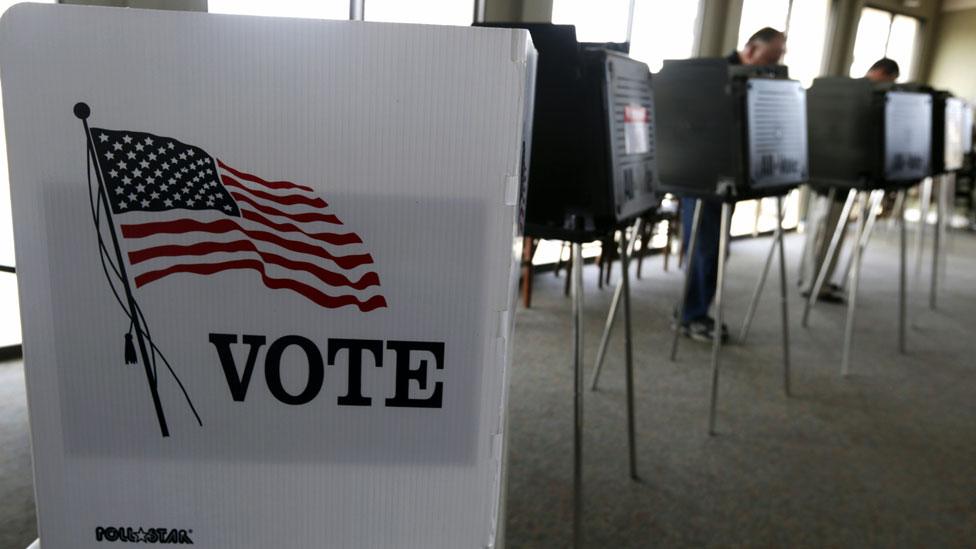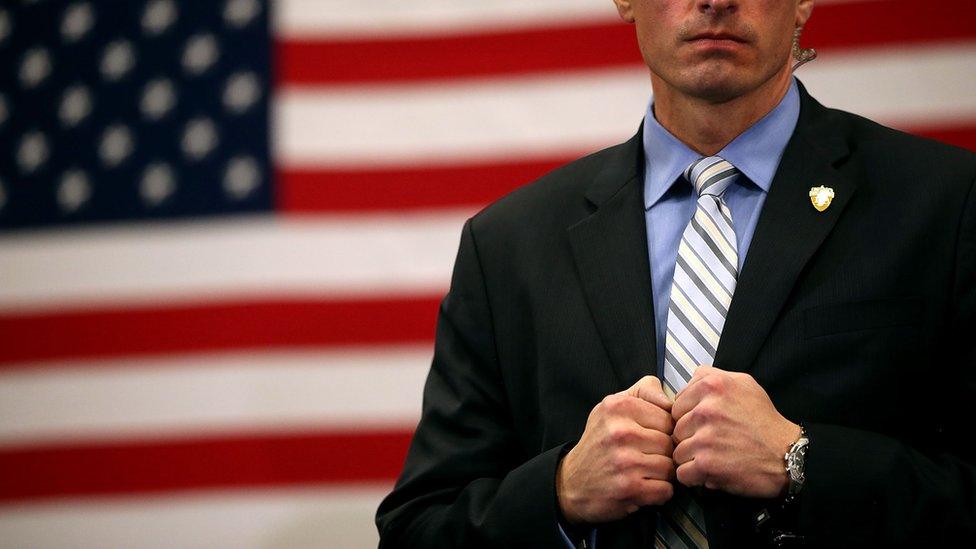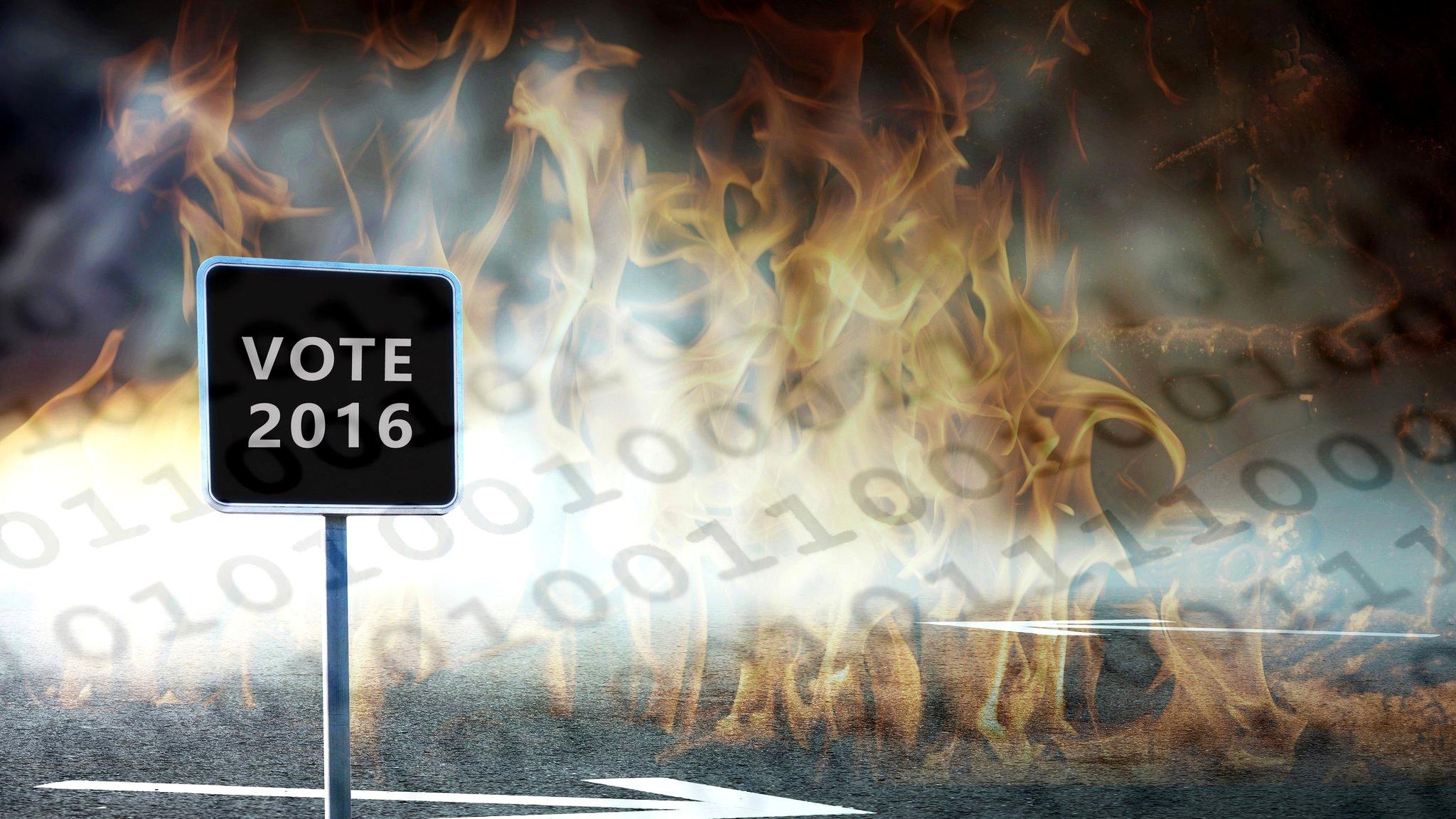Obama orders review into 'Russian hacking' before US election
- Published

Voter data in Illinois was breached
President Barack Obama has ordered an investigation into a series of cyber-attacks, blamed on Russia, that shook the US election season.
The hacks targeted emails at the Democratic Party and a key aide to presidential nominee Hillary Clinton.
In October, US government officials pointed the finger at Russia, accusing it of meddling in the US vote.
According to a secret CIA assessment reported by the Washington Post, Russia intervened to help Donald Trump win.
The allegation was flatly dismissed by the transition team for Mr Trump, who will succeed Mr Obama in the White House next month.
Russian officials have denied the hacking accusations.

'Sending a message' - BBC White House reporter Tara McKelvey
The "full review", as Lisa Monaco, Mr Obama's top counterterrorism adviser, described it during a breakfast hosted by the Christian Science Monitor, sounds impressive. It'll look at Russian efforts to sway the US presidential election. In fact, the report is likely to rely largely on work that FBI investigators and others have already done on the subject.
It's also unclear which parts of the report, if any, will be shown to the public. In some ways, her announcement about the report - made only a few weeks before she and her colleagues leave office - seems to be part of an effort to burnish their legacy. Several days ago a counterterrorism report, external was released that was a compilation of previous legal and policy work by Obama administration officials - with few revelations.
The report on Russian hacking - like the recent one on counterterrorism - is likely to act more as a way to showcase the Obama administration's efforts, sending a message to the incoming administration about what they believe is important, rather than as a way to provide new information to the public.

Democrats were enraged when hackers breached email accounts of the Democratic National Committee and Mrs Clinton's campaign chairman, John Podesta.
State voter registration databases in Illinois and Arizona were also breached.
The Podesta emails were revealed by Wikileaks and posted online.
Quoting an unnamed "senior US official", the Washington Post said, external "intelligence agencies" had "identified individuals with connections to the Russian government who provided WikiLeaks with thousands of hacked emails from the Democratic National Committee and others, including Hillary Clinton's campaign chairman".
Mr Trump's team responded by saying: "These are the same people that said Saddam Hussein had weapons of mass destruction."
At one point during the campaign, Mr Trump had encouraged Russia by name to "find" Mrs Clinton's emails, although he said after an outcry that he was being sarcastic.
Democrats claimed the hacks were a deliberate attempt to undermine Mrs Clinton's campaign.
"The president wanted this done under his watch because he takes it very seriously," said White House spokesman Eric Schultz.
"We are committed to ensuring the integrity of our elections."
He described the review as a "deep dive" into "malicious" cyber-activity.
It will look at the methods, targets and the US government's response, he said, and it will be completed before Mr Obama leaves office and hands over to Mr Trump in January.
"Given President-elect Trump's disturbing refusal to listen to our intelligence community and accept that the hacking was orchestrated by the Kremlin, there is an added urgency to the need for a thorough review before President Obama leaves office next month," Democratic Congressman Adam Schiff said in a statement.
It is unclear if the contents of the review will be made public.

More on Trump and Russia
CIA director John Brennan tells the BBC what global threats Donald Trump will face as US president
- Published18 August 2016

- Published11 October 2016
